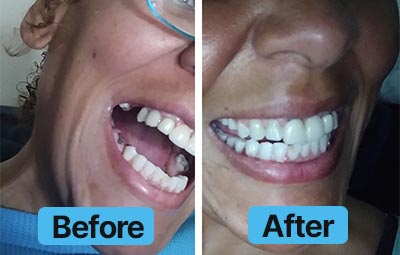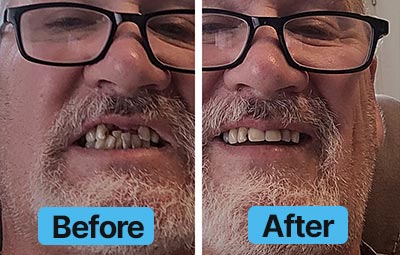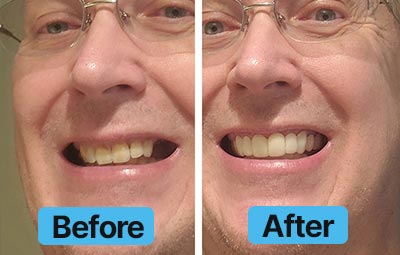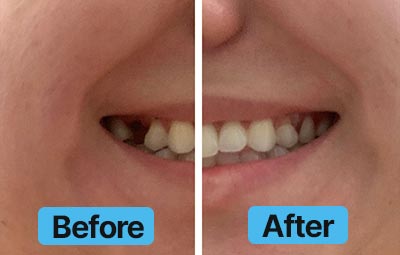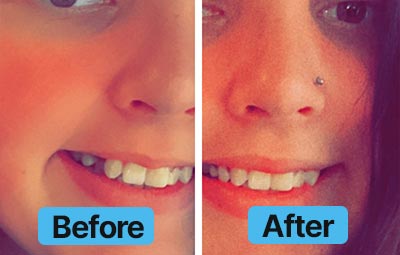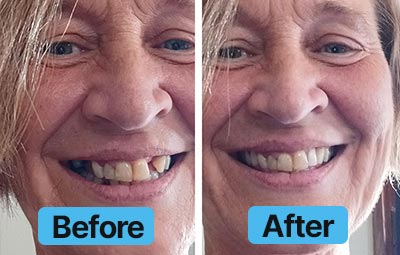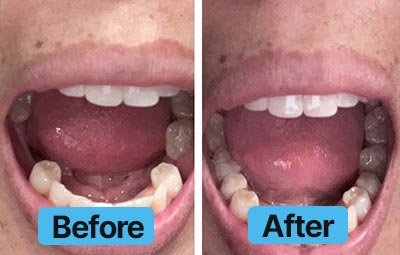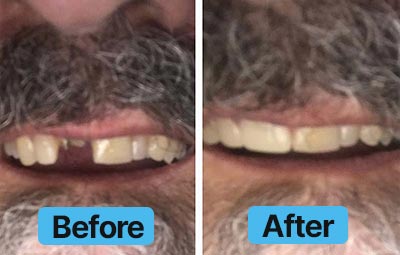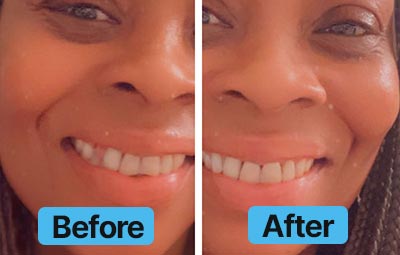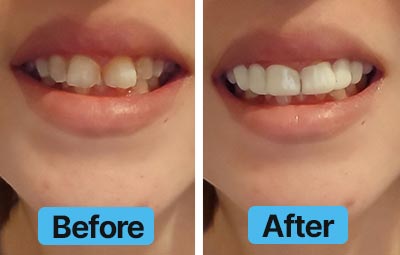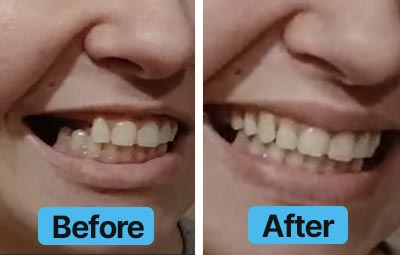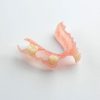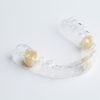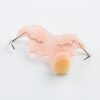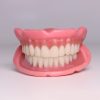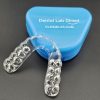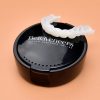If you’re enhancing your smile, the pros and cons of dental veneers are important to consider. Veneers are a popular choice for achieving a flawless, radiant look, but like any cosmetic dental procedure, weighing the benefits and drawbacks is essential. To help you decide if veneers fit your needs and budget, here’s everything you need to know about their pros and cons.
What Are Dental Veneers?
Dental veneers are thin, custom-made shells that cover the front surface of teeth. They are designed to improve the appearance of your smile by addressing issues such as discoloration, gaps, chips, or uneven teeth. Veneers are typically made from either porcelain or composite resin materials.
Types of Veneers
- Porcelain Veneers: Highly durable and stain-resistant, porcelain veneers offer a natural, lifelike appearance. They require more preparation and are often more expensive, but deliver long-lasting results.
- Composite Veneers: Composite veneers, made from tooth-colored resin, are more affordable. They are quicker to apply but less durable or stain-resistant than porcelain veneers.
Clip-On Veneers: A Non-Permanent Alternative
If you’re curious about veneers but not ready for a permanent commitment, clip-on veneers—also called snap-on veneers—could be a great option. These removable covers fit over your existing teeth, instantly improving your smile without any drilling or enamel removal.
Pros of Clip-On Veneers:
- Non-invasive and painless
- More affordable than traditional veneers
- Reversible and easy to use for special occasions
Cons of Clip-On Veneers:
- Primarily cosmetic, not a long-term solution
- May feel bulky or unnatural at first
The Application Process
Getting veneers typically involves a multi-step process with your dentist. This includes an initial consultation, preparation of your natural teeth (which may involve removing a thin layer of enamel), creation of the custom veneers, and their application using a specialized bonding agent.
Dental Veneers Pros and Cons
Dental veneers can effectively improve the appearance of discolored, chipped, or misshapen teeth, offering a natural-looking smile. However, they may require enamel removal, which can be costly, especially if they opt for more durable materials like porcelain.
Pros of Dental Veneers
Dental veneers have become a go-to solution for many seeking a dramatic and lasting dental transformation. Here are their key benefits:
1. Aesthetic Improvement
Veneers offer a drastic improvement in your smile’s appearance. They can whiten discolored teeth, fill gaps, and create a uniform, flattering alignment. Beyond cosmetic benefits, veneers can enhance your confidence and help you feel more self-assured in social or professional settings.
2. Durability
Porcelain veneers can last up to 10–15 years with proper care. While less durable, composite veneers offer several years of improved appearance. With regular dental checkups and good oral hygiene, veneers can maintain their look and function for years, making them a long-term investment in your smile.
3. Stain Resistance
Porcelain veneers are highly resistant to staining, making them ideal for those who enjoy coffee, tea, or other foods known to discolor teeth. This resistance means you’ll spend less time worrying about discoloration and more time enjoying your favorite beverages.
4. Minimal Procedure
Compared to alternatives like crowns, veneers are less invasive. The preparation process typically requires the removal of minimal enamel, preserving the natural structure of your teeth. This makes veneers healthier for your teeth while still achieving stunning results.
Cons of Dental Veneers
While veneers provide many benefits, some considerations might make them unsuitable for some individuals.
1. Cost
Veneers can be expensive, with porcelain options costing anywhere from $900 to $2,500 per tooth. This cost is often prohibitive, especially for those requiring multiple veneers. It’s essential to weigh the long-term benefits against the upfront cost to determine if they’re worth the investment.
2. Irreversible Process
Since enamel is removed before placing veneers, the procedure is irreversible. Once you opt for veneers, you must maintain or replace them over time. This makes it essential to choose a qualified dentist and consider the lifelong commitment veneers require.
3. Sensitivity
The procedure may leave your teeth more sensitive to hot and cold foods or drinks due to removing enamel. Using toothpaste designed for sensitive teeth can help minimize discomfort after the procedure.
4. Risk of Damage
Although durable, veneers can chip or crack if not properly cared for. Nighttime teeth grinding or biting complex objects can pose risks. Wearing a nightguard and avoiding habits like nail-biting can help protect your veneers and prolong their lifespan.
5. Not Suitable for Everyone
Veneers are not recommended for individuals with severe tooth decay, gum disease, or weak enamel, as these underlying issues must be addressed before pursuing cosmetic solutions. Consulting with a dentist for a complete oral health evaluation is crucial before considering veneers.
Is a New Smile Worth It?
Choosing to enhance your smile is a deeply personal decision, and understanding the pros and cons of dental veneers is key to making the right choice. Traditional veneers offer lasting beauty, durability, and confidence, but they also come with financial, procedural, and long-term care considerations.
If you’re looking for a non-invasive, budget-friendly way to improve your smile, snap-on veneers from Dental Lab Direct might be the perfect place to start. These custom-made, removable veneers let you explore a new look without the permanence or high cost of traditional options.
 30 DAY warranty on all custom-made products | 1,000+ 5 Star ★★★★★ Reviews
30 DAY warranty on all custom-made products | 1,000+ 5 Star ★★★★★ Reviews

